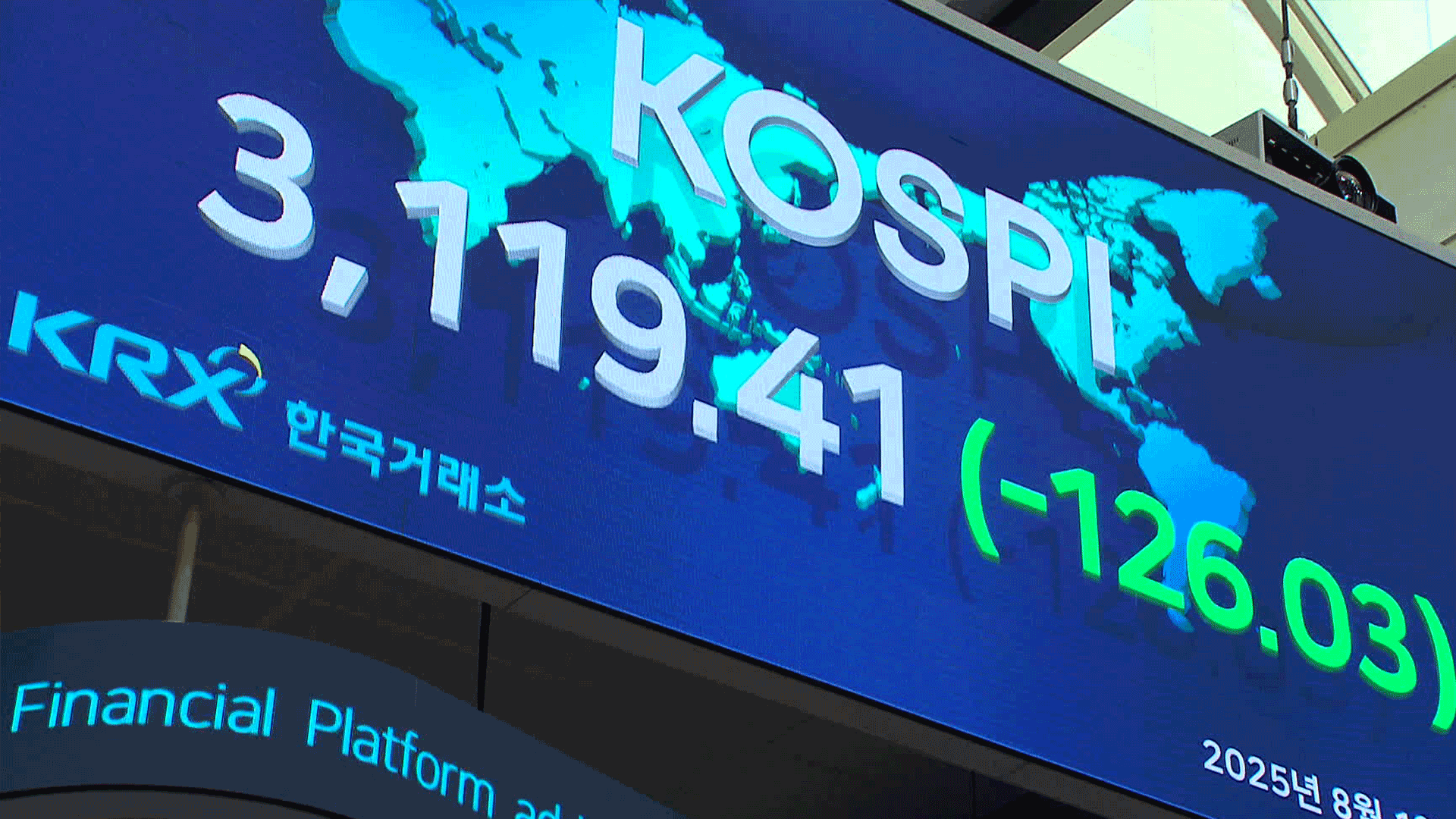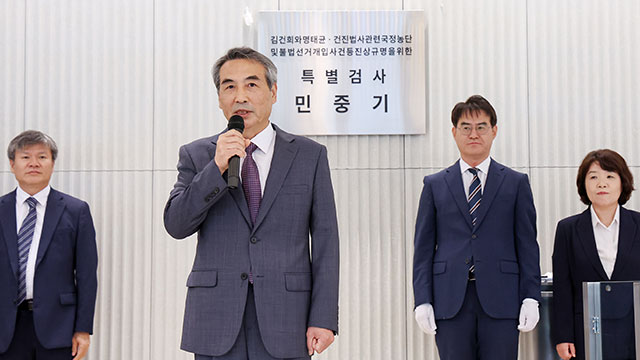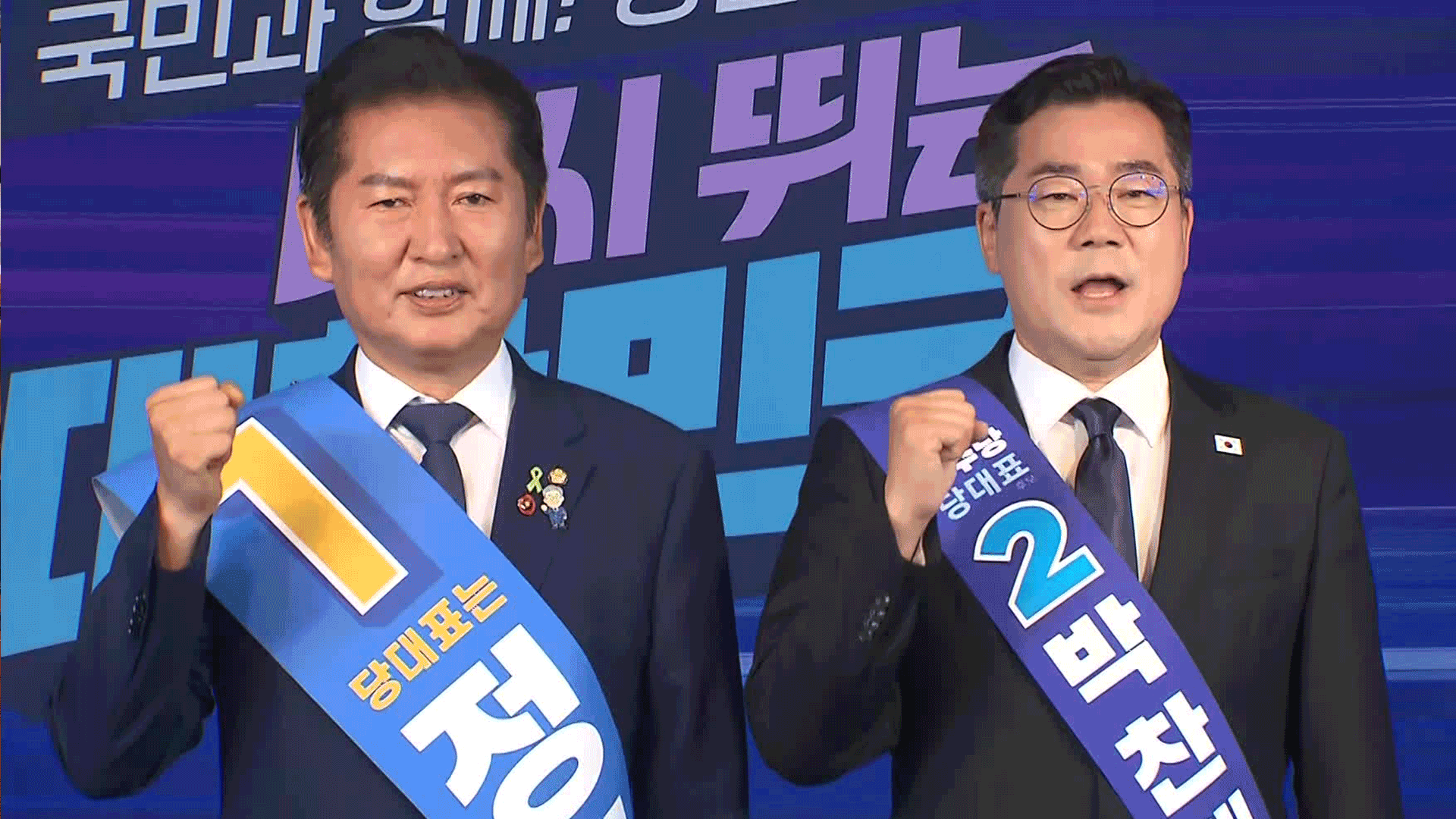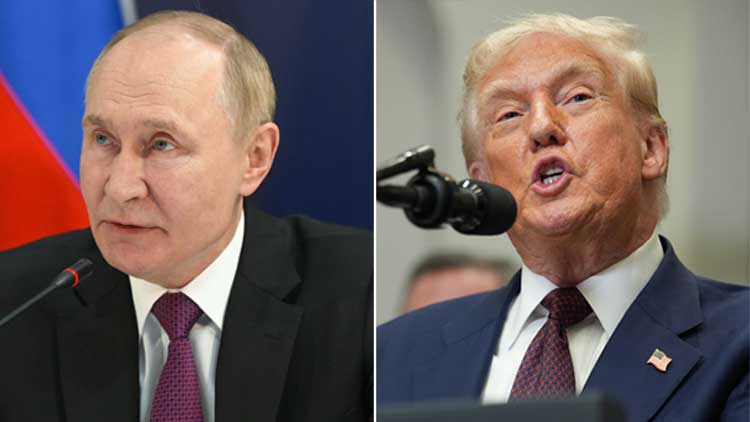[Anchor]
Today (Aug. 1), the KOSPI index plummeted by nearly 4%.
This appears to be a backlash against the proposed tax reform plan that aims to increase taxes related to stocks.
The government and the ruling party are monitoring public opinion on the matter.
Reporter Song Soo-jin has the story.
[Report]
The KOSPI stands at 3,119 points.
It dropped by 126 points, nearly 4%, compared to yesterday (July 31).
Considering that it had steadily risen from below 2,700 just before the presidential election and surpassed 3,250 two days ago, reaching a record high, this is a sudden reversal.
This is the largest drop since the Lee Jae Myung administration took office, and the tax reform plan announced yesterday has created a negative atmosphere.
Although the dividend income tax rate was lowered, it was less than expected.
The plan is to revert the securities transaction tax rate from 0.15% to 0.2% and to expand the scope of shareholders subject to capital gains tax on stock profits.
[Lee Hyoung-il/Deputy Minister of Finance: "Before, when the threshold for major shareholders was 5 billion won, there were about 6,000 people. If we set it to 1 billion won this time, it will increase to about 24,000 people."]
The government has downplayed the impact on the stock market, but disappointment is spreading over whether this is the same government that promised a KOSPI of 5,000.
A petition in the National Assembly opposing the expansion of the major shareholder scope reached the required 50,000 signatures in just one day, prompting the government and ruling party to soften their stance, saying they would closely monitor public opinion during the two-week legislative notice period.
Expectations that the U.S. might slowly lower or raise interest rates have also increased foreign net selling.
Tariffs have also played a role in this situation.
[Seo Sang-young/Researcher at Mirae Asset Securities: "Since the imposition of tariffs will begin on August 1, the pace of the U.S. economic slowdown will likely accelerate. Korea's exports will inevitably slow down, which will lead to a drop in stock prices."]
For the same reason, the dollar is becoming expensive again.
The won-dollar exchange rate has risen to the 1,400 won range for the first time in two and a half months.
The delay in discussions on exchange rates, one of the tariff negotiation topics, is also increasing exchange rate anxiety.
This is KBS News, Song Soo-jin.
Today (Aug. 1), the KOSPI index plummeted by nearly 4%.
This appears to be a backlash against the proposed tax reform plan that aims to increase taxes related to stocks.
The government and the ruling party are monitoring public opinion on the matter.
Reporter Song Soo-jin has the story.
[Report]
The KOSPI stands at 3,119 points.
It dropped by 126 points, nearly 4%, compared to yesterday (July 31).
Considering that it had steadily risen from below 2,700 just before the presidential election and surpassed 3,250 two days ago, reaching a record high, this is a sudden reversal.
This is the largest drop since the Lee Jae Myung administration took office, and the tax reform plan announced yesterday has created a negative atmosphere.
Although the dividend income tax rate was lowered, it was less than expected.
The plan is to revert the securities transaction tax rate from 0.15% to 0.2% and to expand the scope of shareholders subject to capital gains tax on stock profits.
[Lee Hyoung-il/Deputy Minister of Finance: "Before, when the threshold for major shareholders was 5 billion won, there were about 6,000 people. If we set it to 1 billion won this time, it will increase to about 24,000 people."]
The government has downplayed the impact on the stock market, but disappointment is spreading over whether this is the same government that promised a KOSPI of 5,000.
A petition in the National Assembly opposing the expansion of the major shareholder scope reached the required 50,000 signatures in just one day, prompting the government and ruling party to soften their stance, saying they would closely monitor public opinion during the two-week legislative notice period.
Expectations that the U.S. might slowly lower or raise interest rates have also increased foreign net selling.
Tariffs have also played a role in this situation.
[Seo Sang-young/Researcher at Mirae Asset Securities: "Since the imposition of tariffs will begin on August 1, the pace of the U.S. economic slowdown will likely accelerate. Korea's exports will inevitably slow down, which will lead to a drop in stock prices."]
For the same reason, the dollar is becoming expensive again.
The won-dollar exchange rate has risen to the 1,400 won range for the first time in two and a half months.
The delay in discussions on exchange rates, one of the tariff negotiation topics, is also increasing exchange rate anxiety.
This is KBS News, Song Soo-jin.
■ 제보하기
▷ 카카오톡 : 'KBS제보' 검색, 채널 추가
▷ 전화 : 02-781-1234, 4444
▷ 이메일 : kbs1234@kbs.co.kr
▷ 유튜브, 네이버, 카카오에서도 KBS뉴스를 구독해주세요!
- KOSPI falls 3.9% on tax plan
-
- 입력 2025-08-02 01:08:13

[Anchor]
Today (Aug. 1), the KOSPI index plummeted by nearly 4%.
This appears to be a backlash against the proposed tax reform plan that aims to increase taxes related to stocks.
The government and the ruling party are monitoring public opinion on the matter.
Reporter Song Soo-jin has the story.
[Report]
The KOSPI stands at 3,119 points.
It dropped by 126 points, nearly 4%, compared to yesterday (July 31).
Considering that it had steadily risen from below 2,700 just before the presidential election and surpassed 3,250 two days ago, reaching a record high, this is a sudden reversal.
This is the largest drop since the Lee Jae Myung administration took office, and the tax reform plan announced yesterday has created a negative atmosphere.
Although the dividend income tax rate was lowered, it was less than expected.
The plan is to revert the securities transaction tax rate from 0.15% to 0.2% and to expand the scope of shareholders subject to capital gains tax on stock profits.
[Lee Hyoung-il/Deputy Minister of Finance: "Before, when the threshold for major shareholders was 5 billion won, there were about 6,000 people. If we set it to 1 billion won this time, it will increase to about 24,000 people."]
The government has downplayed the impact on the stock market, but disappointment is spreading over whether this is the same government that promised a KOSPI of 5,000.
A petition in the National Assembly opposing the expansion of the major shareholder scope reached the required 50,000 signatures in just one day, prompting the government and ruling party to soften their stance, saying they would closely monitor public opinion during the two-week legislative notice period.
Expectations that the U.S. might slowly lower or raise interest rates have also increased foreign net selling.
Tariffs have also played a role in this situation.
[Seo Sang-young/Researcher at Mirae Asset Securities: "Since the imposition of tariffs will begin on August 1, the pace of the U.S. economic slowdown will likely accelerate. Korea's exports will inevitably slow down, which will lead to a drop in stock prices."]
For the same reason, the dollar is becoming expensive again.
The won-dollar exchange rate has risen to the 1,400 won range for the first time in two and a half months.
The delay in discussions on exchange rates, one of the tariff negotiation topics, is also increasing exchange rate anxiety.
This is KBS News, Song Soo-jin.
Today (Aug. 1), the KOSPI index plummeted by nearly 4%.
This appears to be a backlash against the proposed tax reform plan that aims to increase taxes related to stocks.
The government and the ruling party are monitoring public opinion on the matter.
Reporter Song Soo-jin has the story.
[Report]
The KOSPI stands at 3,119 points.
It dropped by 126 points, nearly 4%, compared to yesterday (July 31).
Considering that it had steadily risen from below 2,700 just before the presidential election and surpassed 3,250 two days ago, reaching a record high, this is a sudden reversal.
This is the largest drop since the Lee Jae Myung administration took office, and the tax reform plan announced yesterday has created a negative atmosphere.
Although the dividend income tax rate was lowered, it was less than expected.
The plan is to revert the securities transaction tax rate from 0.15% to 0.2% and to expand the scope of shareholders subject to capital gains tax on stock profits.
[Lee Hyoung-il/Deputy Minister of Finance: "Before, when the threshold for major shareholders was 5 billion won, there were about 6,000 people. If we set it to 1 billion won this time, it will increase to about 24,000 people."]
The government has downplayed the impact on the stock market, but disappointment is spreading over whether this is the same government that promised a KOSPI of 5,000.
A petition in the National Assembly opposing the expansion of the major shareholder scope reached the required 50,000 signatures in just one day, prompting the government and ruling party to soften their stance, saying they would closely monitor public opinion during the two-week legislative notice period.
Expectations that the U.S. might slowly lower or raise interest rates have also increased foreign net selling.
Tariffs have also played a role in this situation.
[Seo Sang-young/Researcher at Mirae Asset Securities: "Since the imposition of tariffs will begin on August 1, the pace of the U.S. economic slowdown will likely accelerate. Korea's exports will inevitably slow down, which will lead to a drop in stock prices."]
For the same reason, the dollar is becoming expensive again.
The won-dollar exchange rate has risen to the 1,400 won range for the first time in two and a half months.
The delay in discussions on exchange rates, one of the tariff negotiation topics, is also increasing exchange rate anxiety.
This is KBS News, Song Soo-jin.
이 기사가 좋으셨다면
-
좋아요
0
-
응원해요
0
-
후속 원해요
0
















이 기사에 대한 의견을 남겨주세요.